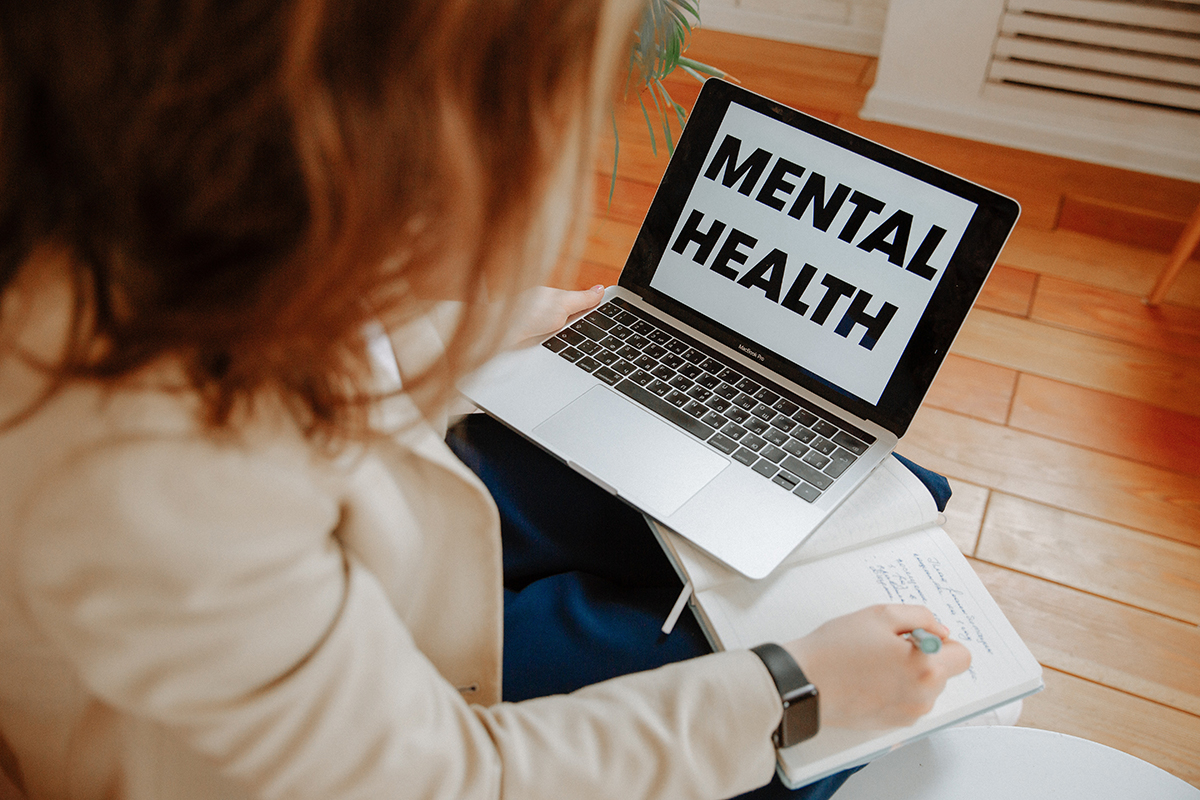
Welcome to Holistiq Health
Our commitment to you is to follow the highest clinical standards, deliver the best possible outcomes, protect your privacy, and treat you like the unique individual that you are. Our approach is result-based care and evidence-based management of your psychiatric condition. We treat adults 18 years and older residing in the states of Virginia and Maryland.
Mental Health Conditions We Treat
- Depression Disorders
- Anxiety Disorders
- Obsessive and Compulsive Disorders
- Insomnia
- PTSD
- ADHD
- Bipolar Disorders
- And many more
About Us

Meet your Provider
Dr. Francoise Bissai, DNP, PMHNP is the founder and managing provider at Holistiq Health. Dr. Francoise Bissai graduated from George Mason University with a Doctorate in Nursing Practice. She is dually certified as a Psychiatric-Mental Health NP and a Family Nurse Practitioner. Dr. Bissai is very passionate about the well-being of her patients and strives to provide exceptional care to all her patients. You will feel listened to and part of the decision-making process every step of the way.
Dr. Bissai specializes in treating a wide range of mental health needs utilizing evidence-based pharmacological protocols available. Dr. Bissai also provides care to patients in long-term care facilities including Nursing homes and Assisted living facilities.
Dr. Francoise Bissai, DNP, PMHNP-BC is licensed to provide Psychiatric Medication Management, Psychotherapy, Psychoeducation, and other behavioral health services. We are currently providing care strictly via telemedicine/telepsychiatry. Your care here at Holistic Health will be restricted to Psychiatric Medication Management and Psychoeducation.
Dr. Bissai encourages all her patients to engage in psychotherapy in addition to medication management for better results. In addition, it is proven that exercise, good sleep hygiene, and avoidance of alcohol and other substances (including cannabis/THC) are important to your recovery. We will be happy to assist you with finding psychotherapy providers in your area, upon request.
Services

At HolistiQ Health we provide treatments for these and other psychiatric Conditions:
Depression (also called major depressive disorder or clinical depression) is a common but serious mood disorder. It causes severe symptoms that affect how you feel, think, and handle daily activities, such as sleeping, eating, or working.
To be diagnosed with depression, the symptoms must be present for at least two weeks.
There are different types of depression, some of which develop due to specific circumstances.
- Major depression, which includes symptoms of depression most of the time for at least 2 weeks that typically interfere with one’s ability to work, sleep, study, and eat.
- Persistent depressive disorder (also called dysthymia), which often includes less severe symptoms of depression that last much longer, typically for at least 2 years.
- Perinatal depression, which occurs when a woman experiences major depression during pregnancy or after delivery (postpartum depression).
- Seasonal affective disorder, which comes and goes with the seasons, typically starting in late fall and early winter and going away during spring and summer.
- Depression with symptoms of psychosis, which is a severe form of depression where a person experiences psychosis symptoms, such as delusions (disturbing, false fixed beliefs) or hallucinations (hearing or seeing things that others do not see or hear).
If you have been experiencing some of the following signs and symptoms most of the day, nearly every day, for at least two weeks, you may be suffering from depression:
- Persistent sad, anxious, or “empty” mood
- Feelings of hopelessness, or pessimism
- Feelings of irritability, frustration, or restlessness
- Feelings of guilt, worthlessness, or helplessness
- Loss of interest or pleasure in hobbies and activities
- Decreased energy, fatigue, or feeling “slowed down”
- Difficulty concentrating, remembering, or making decisions
- Difficulty sleeping, early morning awakening, or oversleeping
- Changes in appetite or unplanned weight changes
- Thoughts of death or suicide, or suicide attempts
- Aches or pains, headaches, cramps, or digestive problems without a clear physical cause that do not ease even with treatment
- Suicide attempts or thoughts of death or suicide
Depression, even the most severe cases, can be treated. The earlier treatment begins, the more effective it is. Depression is usually treated with medications, psychotherapy, or a combination of the two. If these treatments do not reduce symptoms, electroconvulsive therapy (ECT) and other brain stimulation therapies may be options to explore.
These include disorders that share features of excessive fear and anxiety and related behavioral disturbances. Fear is the emotional response to real or perceived imminent threat, whereas anxiety is anticipation of future threat. There are several types of anxiety disorders (social anxiety disorder, separation anxiety, panic disorder and many more), with generalized anxiety disorder being the most common type. People with anxiety may also experience panic symptoms as a result of severe anxiety.
Obsessive-compulsive disorder (OCD) is a common, chronic, and long-lasting disorder characterized by uncontrollable, reoccurring thoughts (obsessions) and/or behaviors (compulsions) that people feel the urge to repeat over and over. Symptoms can fluctuate over time, and people with OCD may try to help themselves by avoiding situations that trigger their obsessions. OCD is a common disorder that affects adults, adolescents, and children, and most people with the disorder are diagnosed by early adulthood.
Treatment options include psychotherapy and at times with medications, such as those used to treat depression and anxiety (NIMH)
Insomnia is one of the most common symptoms for which adults seek medical advice. Although sleep is a strong and highly regulated biologic drive, the ability to fall asleep at the desired time and maintain sleep without excessive waking is fragile and depends on many factors. These factors need to be identified so that they can be targeted for effective treatment of insomnia. Attempts need to be made to eliminate or at least minimize factors and comorbid illnesses (including many mental health disorders) that interfere with optimal sleep need to be addressed. One must start with good sleep hygiene practices such as maintaining a regular sleep schedule, avoiding use of electronics close to bedtime or while in bed, avoiding caffeinated beverages and alcohol close to bedtime, maintaining a healthy diet and adequate hydration (water preferably) and consistent physical activity. Some patients may require medications to help them sleep but the use of these should be minimized and closely monitored.
PTSD is a disorder that develops mostly in some people who have experienced a shocking, scary, or dangerous event.
Nearly everyone will experience a range of reactions after trauma, yet most people recover from initial symptoms naturally. Those who continue to experience problems may be diagnosed with PTSD. People who have PTSD may feel stressed or frightened, even when they are not in danger.
Not everyone with PTSD has been through a dangerous event. Some experiences, like the sudden, unexpected death of a loved one, can also cause PTSD.
Symptoms usually begin early, within 3 months of the traumatic incident, but sometimes they begin years afterward. Symptoms must last more than a month and be severe enough to interfere with relationships or work to be considered PTSD. The course of the illness varies. Some people recover within 6 months, while others have symptoms that last much longer. In some people, the condition becomes chronic.
Symptoms include
- Flashbacks—reliving the trauma over and over, including physical symptoms like a racing heart or sweating
- Bad dreams
- Frightening thoughts
- Staying away from places, events, or objects that are reminders of the traumatic experience
- Avoiding thoughts or feelings related to the traumatic event
- Being easily startled
- Feeling tense or “on edge”
- Having difficulty sleeping
- Having angry outbursts
- Trouble remembering key features of the traumatic event
- Negative thoughts about oneself or the world
- Distorted feelings like guilt or blame
- Loss of interest in enjoyable activities
The main treatments for people with PTSD are medications, psychotherapy (“talk” therapy), or both.
ADHD is marked by an ongoing pattern of inattention and/or hyperactivity-impulsivity that interferes with functioning or development. People with ADHD experience an ongoing pattern of the following types of symptoms:
- Inattention means a person may have difficulty staying on task, sustaining focus, and staying organized, and these problems are not due to defiance or lack of comprehension.
- Hyperactivity means a person may seem to move about constantly, including in situations when it is not appropriate, or excessively fidgets, taps, or talks. In adults, hyperactivity may mean extreme restlessness or talking too much.
- Impulsivity means a person may act without thinking or have difficulty with self-control. Impulsivity could also include a desire for immediate rewards or the inability to delay gratification. An impulsive person may interrupt others or make important decisions without considering long-term consequences.
ADHD is more common in males than females, and females with ADHD are more likely to primarily have inattention symptoms. People with ADHD often have other conditions, such as learning disabilities, anxiety disorder, conduct disorder, depression, and substance use disorder.
While there is no cure for ADHD, currently available treatments may reduce symptoms and improve functioning. Treatments include medication, psychotherapy, education or training, or a combination of treatments.
Bipolar disorder is a mental illness that causes unusual shifts in mood, energy, activity levels, concentration, and the ability to carry out day to day tasks. Individuals with bipolar disorder can quickly swing from extremes of happiness, energy, and clarity to sadness, fatigue, and confusion. There are three types of bipolar disorder. All three types involve clear changes in mood, energy, and activity levels. These moods range from periods of extremely “up,” elated, irritable, or energized behavior (known as manic episodes) to very “down,” sad, indifferent, or hopeless periods (known as depressive episodes). Less severe manic periods are known as hypomanic episodes. During a hypomanic episode, a person may feel very good, be able to get things done and keep up with day-to-day life. The person may not feel that anything is wrong, but family and friends may recognize the changes in mood or activity levels as possible bipolar disorder. Without proper treatment, people with hypomania can develop severe mania or depression.
Occasional anxiety is a normal part of life. But people with GAD feel extremely worried or nervous more frequently about everyday life stressors and other things—even when there is little or no reason to worry about them. GAD usually involves a persistent feeling of anxiety or dread that interferes with how you live your life. It is not the same as occasionally worrying about things or experiencing anxiety due to stressful life events. People living with GAD experience frequent anxiety for months, if not years.
GAD develops slowly. It often starts around age 30, although it can occur in childhood. The disorder is more common in women than in men. Symptoms usually include:
- Worry excessively about everyday things
- Have trouble controlling their worries or feelings of nervousness
- Know that they worry much more than they should
- Feel restless and have trouble relaxing
- Have a hard time concentrating
- Startle easily
- Have trouble falling asleep or staying asleep
- Tire easily or feel tired all the time
- Have headaches, muscle aches, stomachaches, or unexplained pains
- Have a hard time swallowing
- Tremble or twitch
- Feel irritable or “on edge”
- Sweat a lot, feel lightheaded, or feel out of breath
- Have to go to the bathroom frequently
Treatment requires a combination of medications and counseling/therapy.
Insurance Accepted
(Virginia Only)







Without Insurance
Initial Patient visit
We take a detailed history, and a review of your symptoms. We perform a mental health examination and come up with a possible diagnosis and discuss treatment recommendations with the client.
$200
Follow-up visit
We review your symptoms and your current treatment plan and discuss if any changes need to be made based on how you are doing.
$125
Below are some Medications that we may prescribe
We may recommend treatment as part of your treatment regimen after a comprehensive diagnostic evaluation.
- Depression
SSRIs/SNRIs/NDRIs/TCAs such as Zoloft, Lexapro, Prozac, Paxil, Effexor, Celexa, Cymbalta, Wellbutrin, Remeron or Elavil
- Anxiety
SSRIs/SNRIs. In addition, anxiolytics such as Buspirone, Propranolol, catapress or hydroxyzine may also be prescribed
- Insomnia
Trazodone, Remeron, Melatonin (OTC) or Ramelteon
- Bipolar Disorders
Mood stabilizers such as Depakote, Lithium, or Lamictal. Antipsychotics such as Seroquel, Zyprexa, Latuda, Abilify
Resources

Frequently asked questions (FAQs)
Care is available to people 18 years and older who are residents of Virginia or Maryland, and who believe they may be experiencing depression (including MDD, PPD, PMDD), Bipolar I and II, anxiety, phobias, OCD, panic disorders, Seasonal Affective Disorders, Insomnia and or Dementia, and think they may benefit from treatment.
Remote care is not a good fit for people with certain conditions. These include but are not limited to:
- People with active suicide planning
- Ongoing, high-risk self-harm behaviors
- Recent involuntary hospitalization for psychiatric reasons
- Active delusions or hallucinations
- Eating disorders with high-risk symptoms
- Serious cardiac, kidney, liver, or neurologic disorders
We treat ADHD with non-stimulants medications such as Bupropion (Wellbutrin), Atomoxetine (Strattera), or Qelbree (Viloxazine)
We will complete a comprehensive evaluation, diagnosis and personalized treatment plan which may include psychiatric medications. We will only prescribe you medications if we believe that they will be safe, effective and appropriate for you. We encourage all our patients to engage in psychotherapy in addition to medication management for better results. Your provider will monitor your care, provide guidance and adjust your treatment as needed to get you the best possible outcomes. At this time, your care at Holistiq Health is limited to medication management only.
We will be happy to assist you in with finding psychotherapy providers in your area, upon request.
It is also proven that exercise, good sleep hygiene, and avoidance of alcohol and other substances (including cannabis/THC) are important to your recovery.
The cost of your visit will depend on the visit type and whether you are paying out of pocket or using insurance. If using insurance, a copay will be collected upfront and your insurance will be billed for the visit. We encourage you to check with your insurance and make sure that mental health services are covered. You accept financial responsibility for any portion of the bill not reimbursed by your insurance company.
Initial visit: The cost is $200.00 if paying out of pocket. This includes a comprehensive assessment of your presenting symptoms, a mental status examination, a diagnosis and a treatment plan that may include prescribing you some medication (s).
Follow-up visit: $125.00 if paying out of pocket. This includes reassessment of your symptoms, evaluation of your current treatment plan, and making any necessary adjustments. It’s very important that we monitor your symptoms to make sure that you are on the right treatment. The outcome of the follow-up visit will also allow you to track your own progress.
We currently accept all major credit cards with payments made directly online and securely in the patient portal. We also accept a limited number of insurances (Anthem BCBS of VA, VA Medicaid and VA Medicare) with more to come. Insurance is only accepted in Virginia. Please call us to find out if your insurance is accepted. Payment is accepted at the start of your appointment. You will be charged the full cost of the visit if you do not show up for your scheduled visit or fail to cancel the appointment at least 48 hours in advance.
Our providers unfortunately do not write notes for time off work, disability evaluations, work compensation cases, one-time evaluations, or letters for emotional support animals. Holistiq Health can provide you with your medical records, which can take approximately 30 days. Once complete, we will email or fax your medical records wherever you need them to go. We can try to expedite this in under 30 days, but we can’t guarantee they’ll be available before then.
In order to receive medication as part of your treatment plan, you need to complete a video visit with your psychiatric provider so that he or she can conduct a full evaluation. It’s also possible that your provider will want to talk to you from time to time during your treatment. You will also be required to fully identify yourself and have a government issued ID on file. Your provider will only be able to send your prescription to a pharmacy in your state of residence (Virginia or Maryland) or some online pharmacies.”
You will receive a text message and or email the day of your appointment with a link to join your appointment. Once you click on the link, you will be required to enter your last name and date of birth to confirm your identity. Make sure to join the appointment at 5-10 minutes before the start of the appointment.
Once you are in your provider’s virtual room, you will want to make sure your video and microphone options are active and working on your device.
To connect with your provider after your initial consultation, just call the office if you have clinical questions about your treatment. If your provider thinks a video appointment is needed based on the reason for your review, he/she may send you a request to book a video appointment with them.
You can also send your provider a message directly at any time. Messages should be used for quick updates or providing clarifying information about your treatment progress. Your provider will not be able to make adjustments to your treatment through messaging alone and will require a formal request for a review to be completed. We will typically respond to your message within 48 hours on weekdays.
Our providers do their best to make your scheduled appointment time but sometimes appointments run over, or technical issues can occur. We would encourage you to wait at least 10 minutes for an initial visit and at least 5 minutes for a follow-up visit before closing out the video or leaving the virtual waiting room.
We hope that this never happens, but if it does, please log into your patient portal if you have already created an account send your provider a message or call the office so that we can help resolve the issue and get you rescheduled right away.
First check out the website for additional information or you can always email us at [email protected] or call us at 571-400-2326 or 571-444-2425.
Committed To Health
Please provide us with some basic information about yourself so we may contact you to set up an appointment.
"*" indicates required fields

